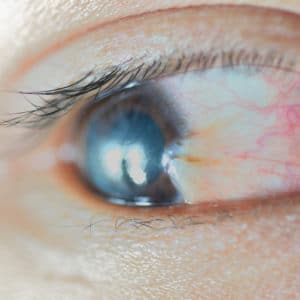 Pterygium, also known as “surfer’s eye,” is an elevated, wedge-shaped bump that grows on the white of the eyeball (known as the sclera) and can gradually invade the cornea. Although a benign condition, pterygium can permanently disfigure the eye and cause blurry vision, if left untreated. Vista Eye Specialists, serving Fredericksburg and Culpeper, has years of experience diagnosing and treating pterygium. Here, they share more information about the eye condition.
Pterygium, also known as “surfer’s eye,” is an elevated, wedge-shaped bump that grows on the white of the eyeball (known as the sclera) and can gradually invade the cornea. Although a benign condition, pterygium can permanently disfigure the eye and cause blurry vision, if left untreated. Vista Eye Specialists, serving Fredericksburg and Culpeper, has years of experience diagnosing and treating pterygium. Here, they share more information about the eye condition.
What Causes Pterygium?
It is unclear exactly what causes pterygium, but research shows it is linked to overexposure to ultraviolet light. Wind and dust (which can expose the eyes to harmful irritants) and dry eye can also lead to pterygium. People between the ages of 30 and 50, and individuals who have light eyes and light skin have an increased risk of developing the condition.
Common Symptoms
Symptoms can range from mild to severe, and can include the following:
- Redness and swelling in the eye
- Dry eye
- Itchy, burning sensation
- Foreign body sensation
- Blurry vision
How to Treat Pterygium
Individuals with mild pterygium may not experience symptoms or need any treatment. The type of treatment needed depends on the size and severity of the pterygium. Small pterygium may be treated with prescription lubricants, mild steroid eye drops or topical cyclosporine, which work to reduce swelling and redness.
Large pterygium growths that cause severe discomfort or vision impairment will need to be surgically removed. Vista Eye Specialists can remove pterygium growths via a quick, in-office procedure for small growths and in an outpatient surgery setting (ASC) for larger pterygium growths. Our doctors will administer a local anesthetic to numb the eye and remove the growth using a no-stitch surgical technique.
Minor side effects from pterygium surgery include redness and swelling. Our team may prescribe eye drops to keep your eye comfortable as it heals. Recovery from surgery is quick; most patients are able to resume normal activities the following day.
While pterygium surgery has a high success rate, there is a chance of recurrence. The biggest cause of recurrence is sun exposure. We recommend you wear sunglasses with 100 percent UV protection to reduce your risk for regrowth. Wearing sunglasses also protects against wind, dust and other irritants that can cause pterygium. Our team can provide you with more tips on how to minimize your risk following your procedure.
To learn more about pterygium surgery, please schedule an appointment with Vista Eye Specialists. Contact us by calling 540-208-5827 today.

